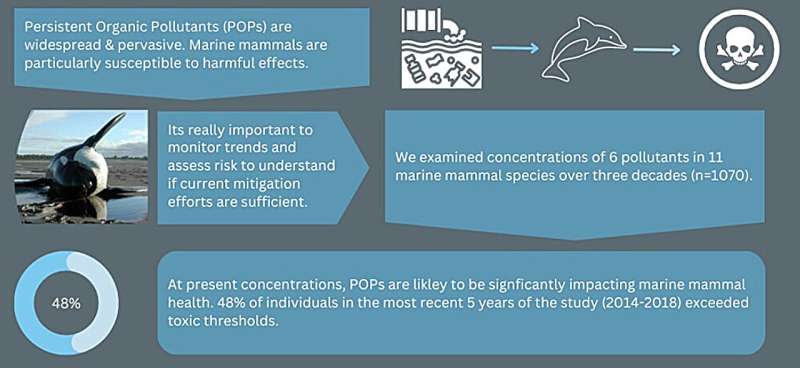Arfiye Eri moved some audience members to tears when she read the poem “Yanarim Yoq” (“No Road Home”) written by prominent Uyghur scholar and influential educator Abduqadir Jalalidin, who was sentenced to life in prison by China in late 2019. The Japanese politician of Uyghur descent, who was elected to the lower house of the Japanese Parliament from the Liberal Democratic Party, recited the poem at the opening of the International Uyghur Forum: Global Parliamentarian Convention held on Oct. 30-31 at the National Diet of Japan.
Eri, 35, was among the more than 150 participants, including about 70 lawmakers from various nations as well as activists and representatives of civil society groups that attended the conference in Tokyo to discuss international responses to the human rights violations against the mostly Muslim Uyghurs who live in the far-western region of Xinjiang. Also known as Alfiya Hidetoshi, Eri is the first person of Uyghur heritage to run as a major party candidate in a Japanese election. She’s now looking towards securing a second term to continue representing the cities of Ichikawa and Urayasu in Chiba prefecture’s fifth district.
Mamatjan Juma of RFA Uyghur recently interviewed Eri about her political ambitions, the meaning of ethnic identity and homeland, and Japan’s response to the genocide of Uyghurs in Xinjiang. The interview has been edited for length and clarity.
RFA: Many Uyghurs are proud of your achievements, and there’s a strong desire within the Uyghur community to learn more about you.
Eri: My Uyghur name is Arfiye Ablet. When my family became citizens in Japan, we had to adhere to Japan's naming system, where the entire family must share the same surname. Both my paternal and maternal grandfathers had the name Eli, so we decided on Eli as our family name. In Japan, I go by the name Arfiye Eli, pronounced “E-ri.” That’s why in Japan, people know me as Eri Arfiye. Eri is a common girl’s name in Japan. To the Japanese, Arfiye sounds foreign and is challenging to pronounce. That’s why, during the election, I referred to myself as Eri, telling them to write Eri as my name. Hence, many Japanese people recognize me as Eri, but my actual name is Arfiye.
RFA: Japan’s political arena is predominantly male. How did you develop an interest in such a competitive area, and what gave you the courage to be a part of it?
Eri: Many people in Japan pose the same question. For instance, having worked in the United Nations and being a woman in her 30s who studied in the United States raise curiosity in Japan. It’s not easy for women to work in Japan. There’s a collective acknowledgment of the need for discussions on supporting women in the workforce and in society. They often assume that working in an international organization, especially in New York, might be easier for women compared to working in Japan.
When I worked at the U.N., I was responsible for examining the policies of South Asia. In our analyses of other countries’ democracies, we assessed factors like the percentage of citizens involved in parliament, diversity in representation, and whether various voices were heard. When I look at my country, Japan, most of the parliament consists of men, primarily over 50 years old. The more I worked at the U.N., the more of this became apparent.
As a Japanese, the absence of someone like me in the Japanese parliament stood out. Many Japanese people around me share similarities — they grew up abroad, speak foreign languages, have parents from abroad, and beyond being Japanese, possess a distinct identity. There are numerous young people like this who are engaged in international work and have progressive ideologies, yet none are in the parliament. I thought that if I am feeling unrepresented in my democracy, perhaps many other Japanese of my age feel the same. So, I believed that one of us should take a stand. If I wanted to make a change, I would have to initiate it myself, and that’s why I began this journey.
RFA: When you studied and worked abroad, you must have faced many questions about your identity. How did you define yourself when confronted with such questions?
Eri: I was born in Japan and lived there until I was 10 years old. When I turned 11, we moved to Shanghai because of my father’s work and later to Guangzhou. During this time, I attended American schools in Shanghai and Guangzhou since I am a Japanese citizen. However, being in China provided more opportunities to visit the Uyghur homeland. I started going there at the age of 11, establishing friendships in Urumqi and cultivating a life that allowed me to connect with my Uyghur identity.
I consider myself fortunate among kids who grew up abroad because with my Japanese citizenship I had the chance to spend a considerable time in China. If I were a U.S. citizen, I might not have had the same privilege. However, Japanese citizens have had this advantage before. Growing up in inner parts of China, I was close to Uyghur culture and had numerous opportunities to return to the Uyghur homeland. In college, when someone asked about my identity, I consistently identified myself as Uyghur, or Uyghur-born in Japan, or Uyghur-Japanese. Even now, people ask about my identity in Japan, and I always say I'm Uyghur-Japanese. I explain that I’m Japanese — I was born and raised here, just like you, but my ethnicity is Uyghur.
RFA: What do ethnic identity and homeland mean to you?
Eri: For me, my ethnicity is Uyghur, but I consider my homeland to be Fukuoka — the city of Kitakyushu in Fukuoka, where I was born and raised. Additionally, Urayasu and Ichikawa cities in Chiba prefecture's fifth district, which I represent, are my new homeland. My ethnic homeland is the Uyghur region. For me, the places I grew up in, feel at home, and plan to return to are the ones I consider my homeland. I believe homeland is not necessarily a single place. I have multiple homelands, and I consider myself very fortunate.
RFA: What does success mean to you?
Eri: I believe success holds different meanings for each individual. However, one form of success, in my view, is when an individual can live the life they desire freely, following the path they have chosen.
RFA: How did you feel when you saw your name on the TIME100 Next 2023, a list of emerging leaders from around the world who are shaping the future and defining the next generation of leadership, issued by Time magazine?
Eri: I was genuinely surprised. I was at McDonald’s in Ichikawa city when I received the news on my phone about being selected. I read it multiple times in front of McDonald’s, wondering if it was true or not. When my secretary arrived, I showed it to her, and both of us couldn’t believe it for a couple of days. However, as time passed and I read Time magazine’s comments about me, I understood. In my understanding, being on the list is not just a recognition of me but also of my district. It acknowledges the progress of my two cities, Ichikawa and Urayasu. I see it as recognition of how a progressive election district allowed a politician like me — a 35-year-old woman of non-Japanese ethnicity — to represent them on the political stage.
RFA: As a second-generation Uyghur who has succeeded in the West, you serve as a source of hope and encouragement for Uyghur women and youth. What’s your message for them?
Eri: The one thing I would like to convey is this: We are born and raised abroad, enjoying freedom and experiencing democracy in many countries. The Uyghur ethnicity has always valued freedom, academia and democracy — it’s almost like it’s ingrained in our culture. Therefore, my advice to Uyghur girls and boys is to utilize this freedom. Seize the opportunities of democracy. If your country is democratic, actively participate in it. This doesn’t just mean taking on a political role; even participating in elections, sharing your voice on platforms like Facebook, or pursuing the path you desire in a free world is a form of engagement. Don’t let anything hinder you from reaching your goals and dreams.
RFA: The United States and more than eight European parliaments have declared that Chian's severe rights abuses in Xinjiang constitute genocide or crimes against humanity. Why hasn't the Japanese Parliament recognized the abuses as a genocide?
Eri: I believe the reason for this is that in Japan, we lack concrete evidence of what is truly happening in the Uyghur region and researchers who can serve as mediators to explain the situation. There is also a deficiency in people with the necessary knowledge on this issue. Another factor is that, in Japan, researchers who specialize in China are the ones primarily discussing the Uyghur region. I conducted Uyghur research during my university years, and in my personal opinion, individuals studying Uyghur affairs should not only comprehend China but also Central Asia, the Turkic world and the former Soviet world.
Unfortunately, in Japan, there is a shortage of individuals who possess this comprehensive understanding compared to an understanding of China. Consequently, we lack researchers who can examine the situation between Central Asia and China, not solely from China’s perspective. As a result, many Japanese politicians believe that we lack evidence regarding what is happening in the Uyghur region and, consequently, are hesitant to label it as genocide. I believe that if organizations like the United Nations put forth efforts in this direction, Japan would likely follow suit. However, since international organizations have not explicitly termed it as genocide, Japan faces challenges in drawing a conclusive stance on the matter.
RFA: Do you believe you have a responsibility to bring this issue to the forefront and explain the situation as a politician?
Eri: My role is to serve as a member of parliament representing my district, which is one of the most advanced and prosperous regions in Japan. The people in my district are highly concerned about international matters. Therefore, as a representative of Ichikawa and Urayasu, I certainly feel the responsibility to address Uyghur issues and international human rights concerns, and I actively engage in this work every day.
RFA: In Xinjiang, Uyghur women of the same age as you are being forced to marry Han Chinese men and undergo sterilization. If they were given the same opportunities, there could be many politicians, scientists and writers who could influence the world. What is your message for them?
Eri: I feel as if these things are happening to my own body. The only difference is that I was fortunate enough to be born here. But apart from that, there is no difference between me and the women in my homeland. If I had been born and raised there and if my parents hadn’t left our homeland, I might have faced the same fate. Therefore, for me, this is a deeply personal matter.
RFA: What are your plans as a Japanese lawmaker?
Eri: Looking ahead, I am already contemplating the second election. In Japan, there is a tradition that getting elected to the parliament the first time is considered luck, while the second time is being truly recognized as a member of one’s district. Therefore, I aim to excel in representing my district in parliament and dedicate all my efforts to securing a second term.
Translated by RFA Uyghur. Edited by Roseanne Gerin and Malcolm Foster. Interview produced and filmed by Bahram Sintash.



 HSEThe lift began moving at normal speed after switching out of inspection mode, the HSE said
HSEThe lift began moving at normal speed after switching out of inspection mode, the HSE said










